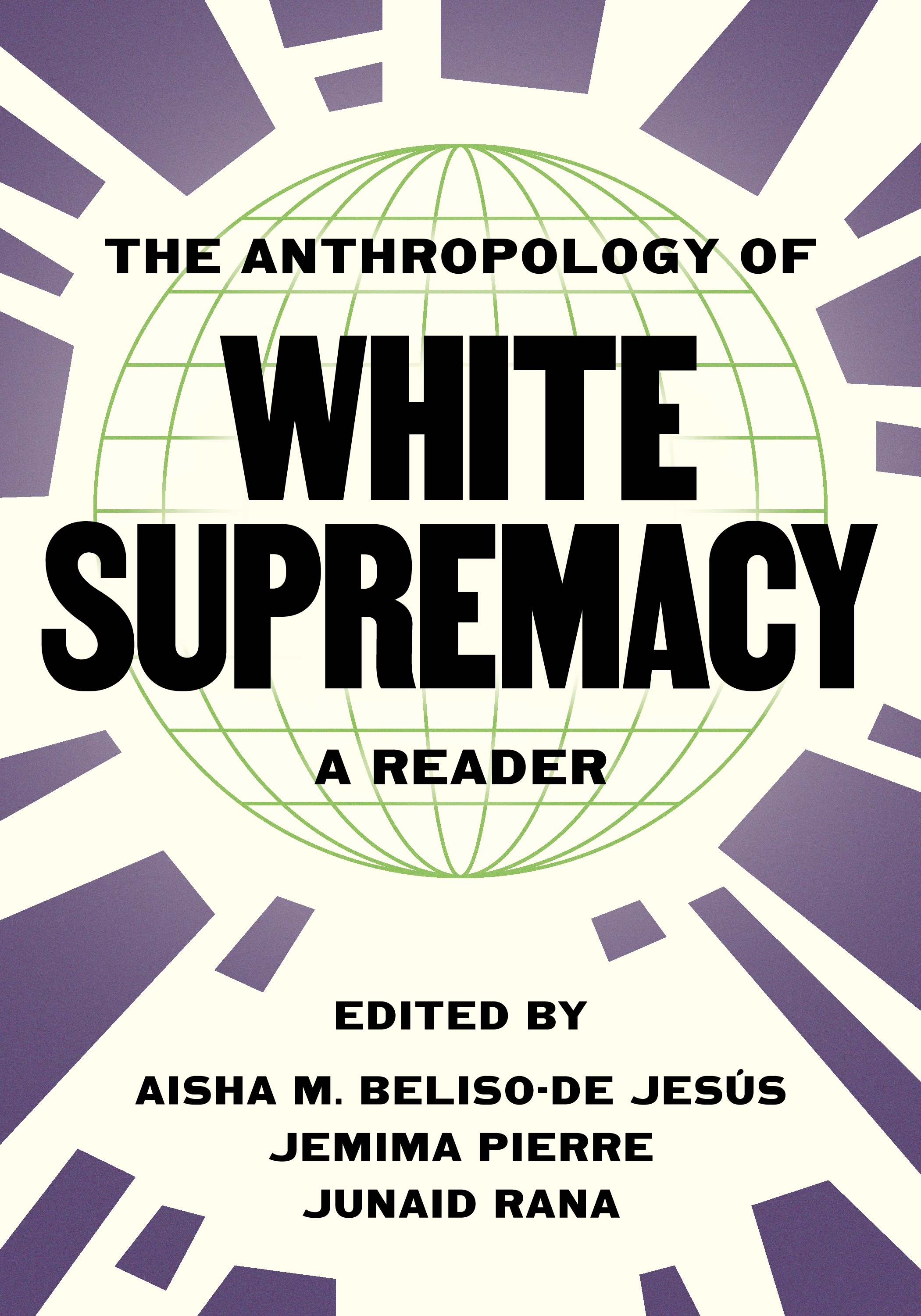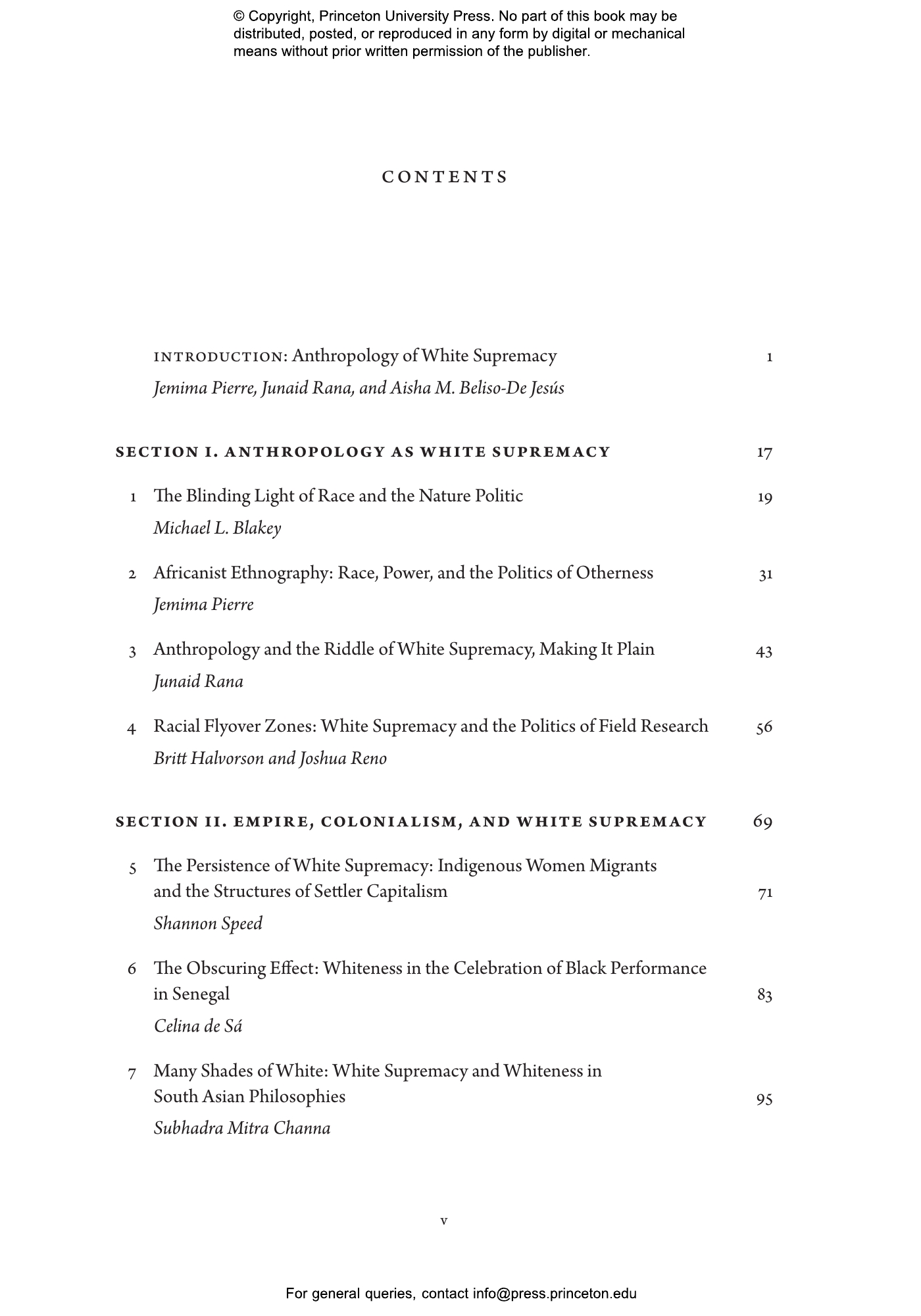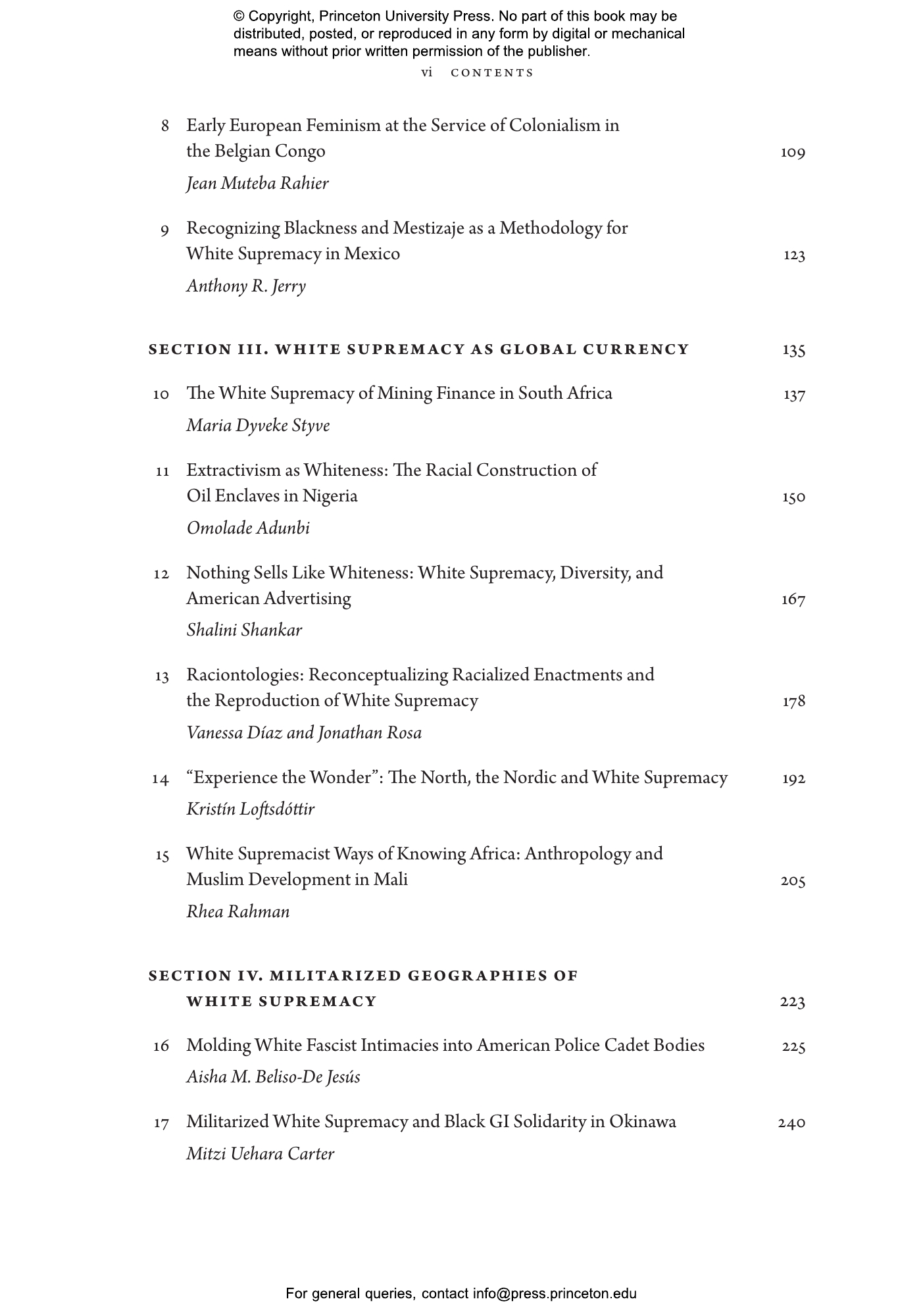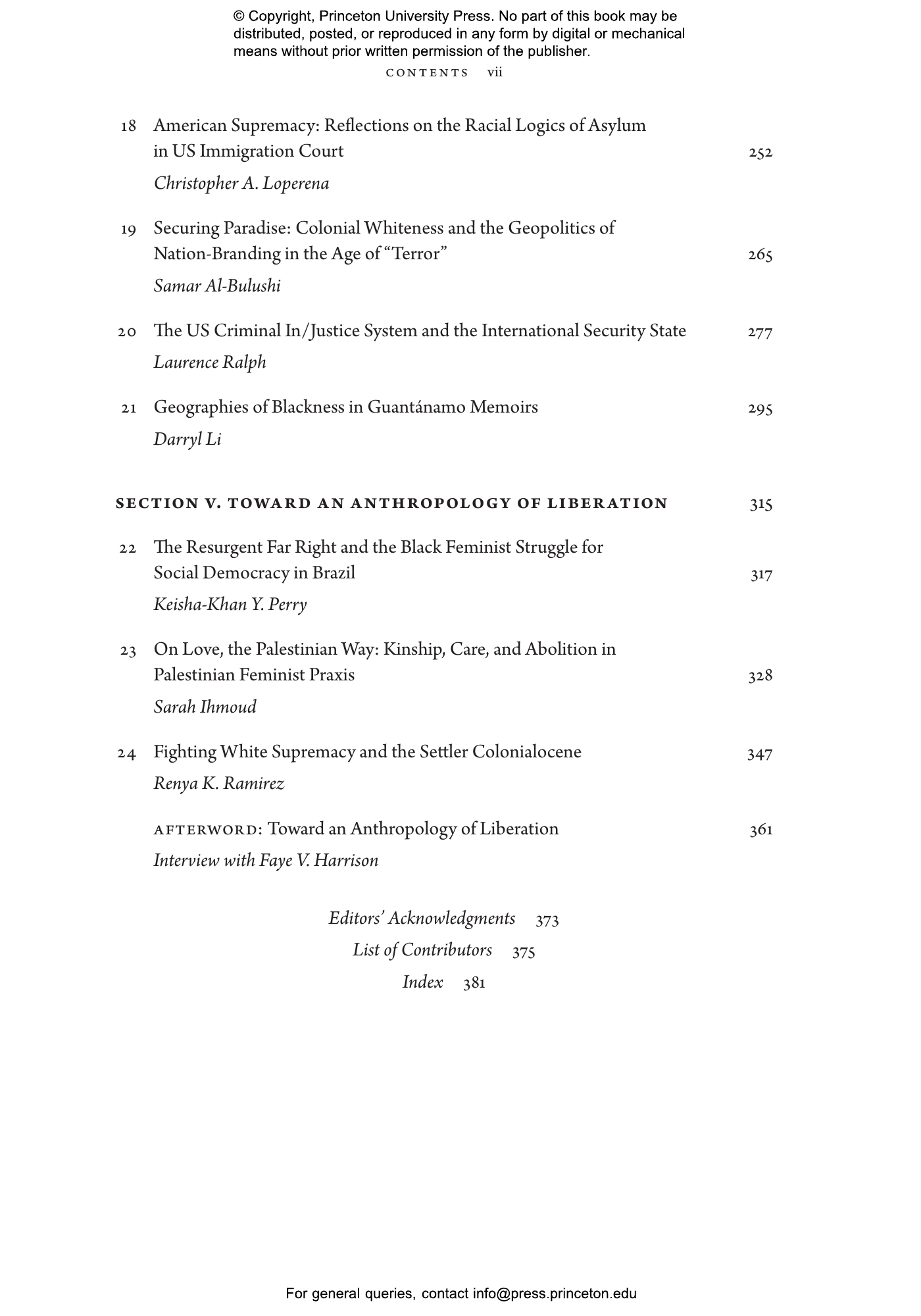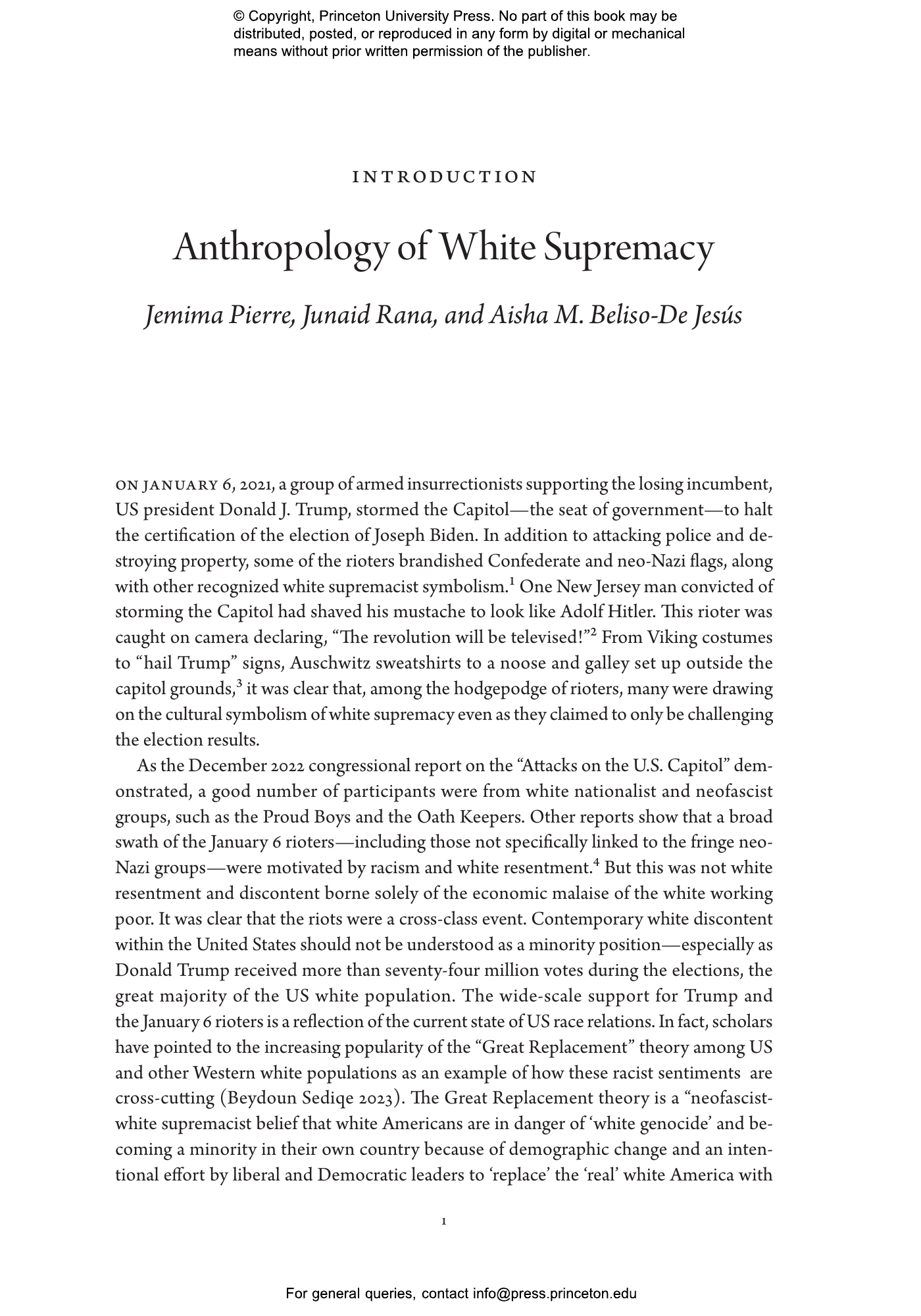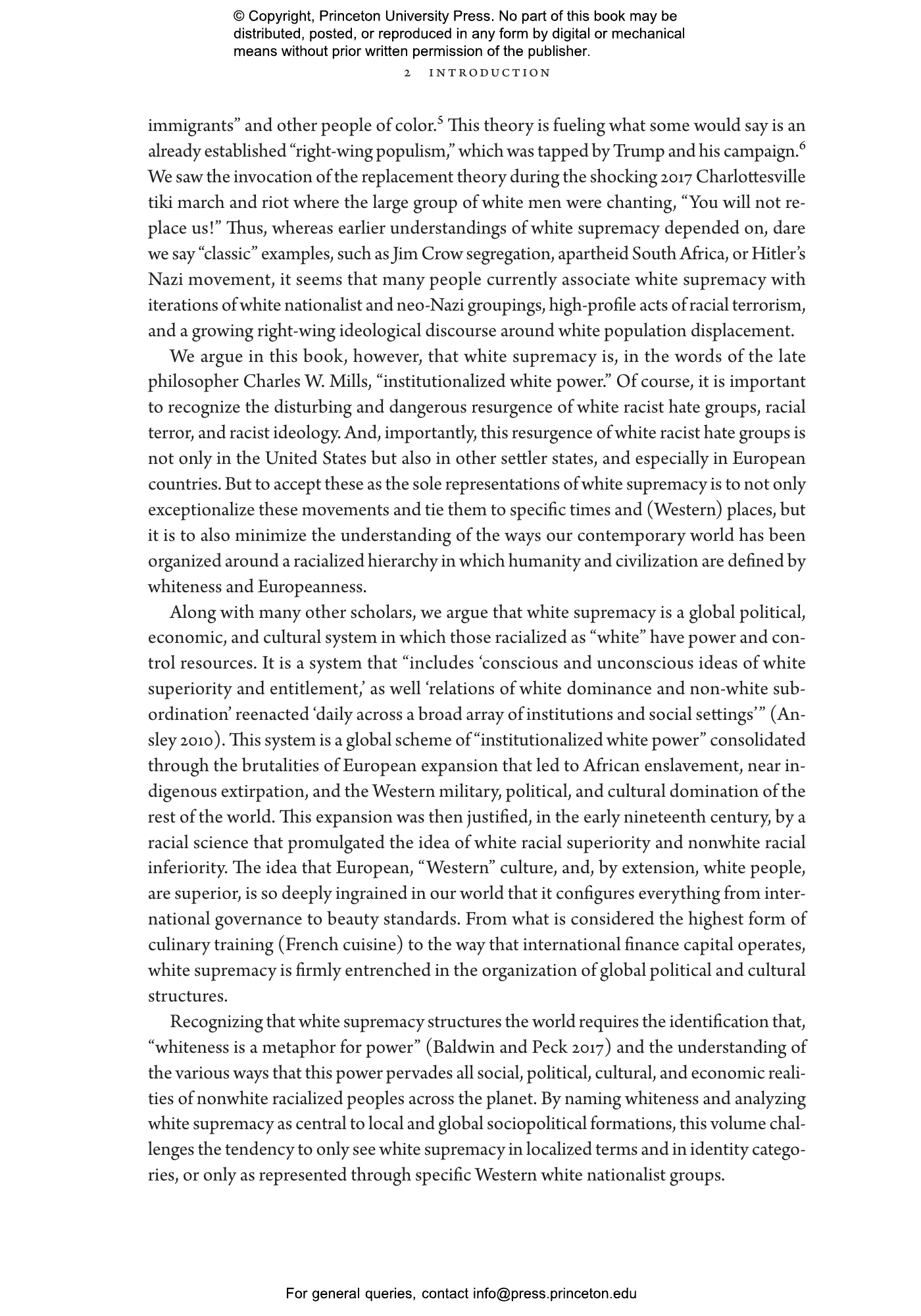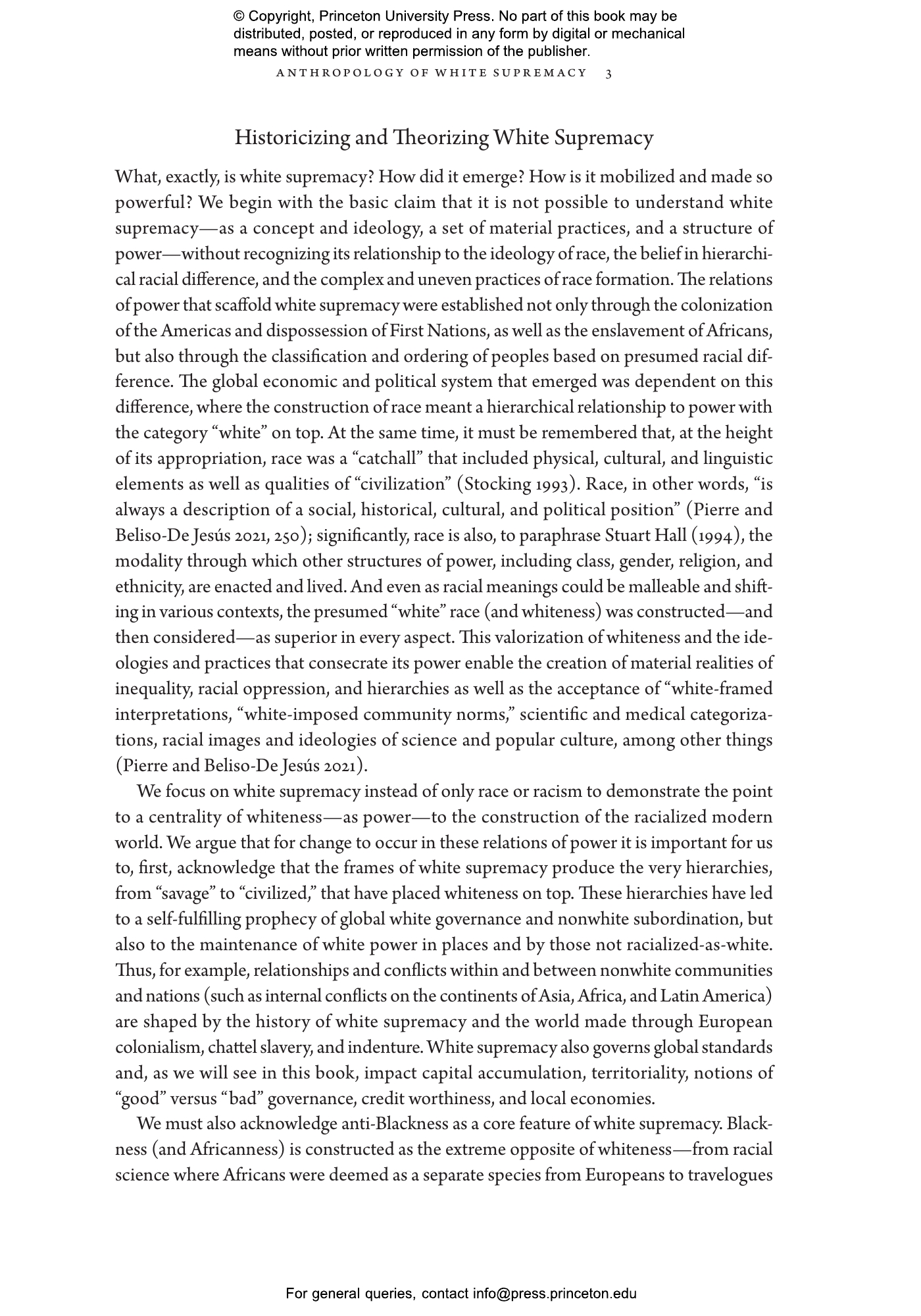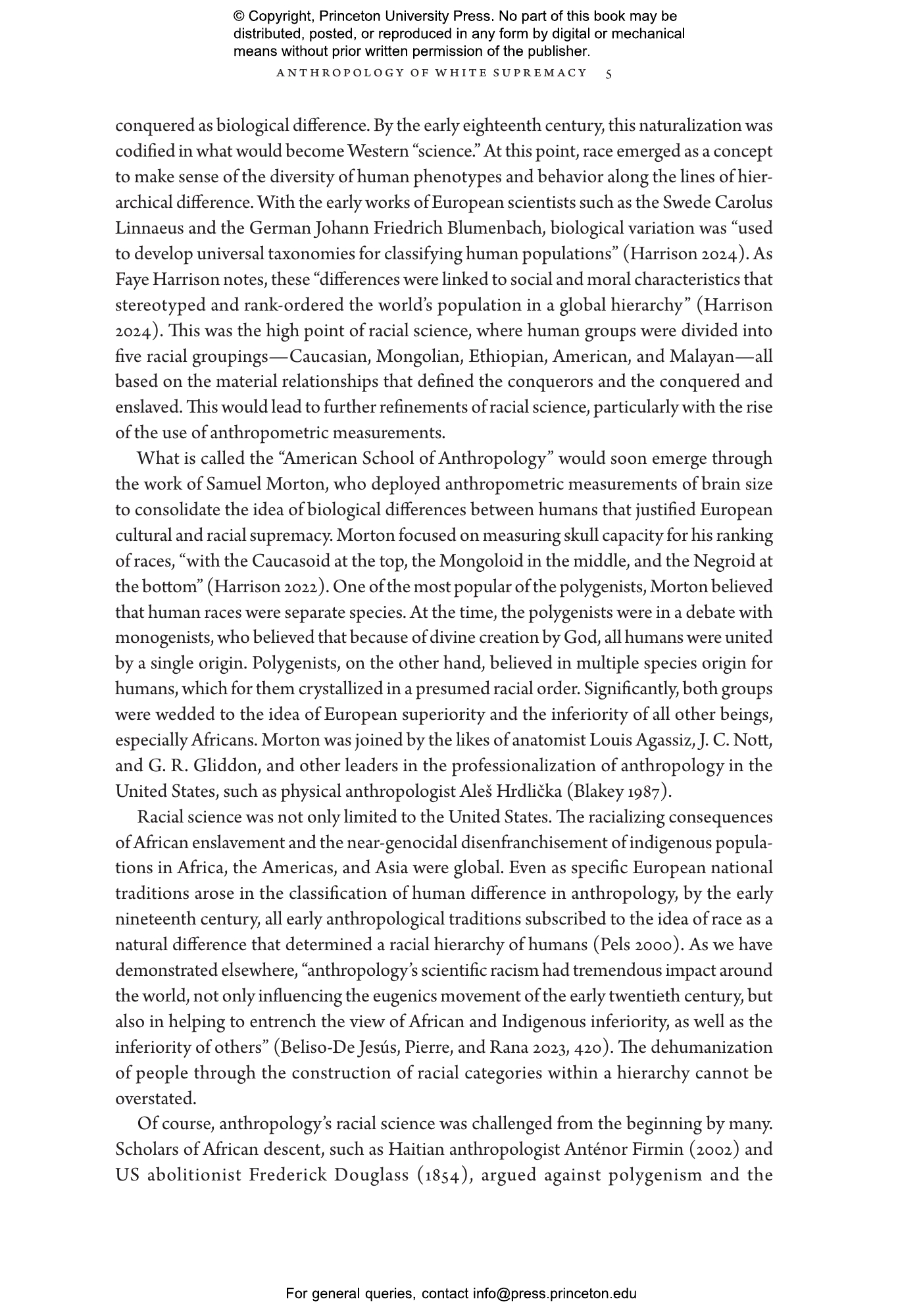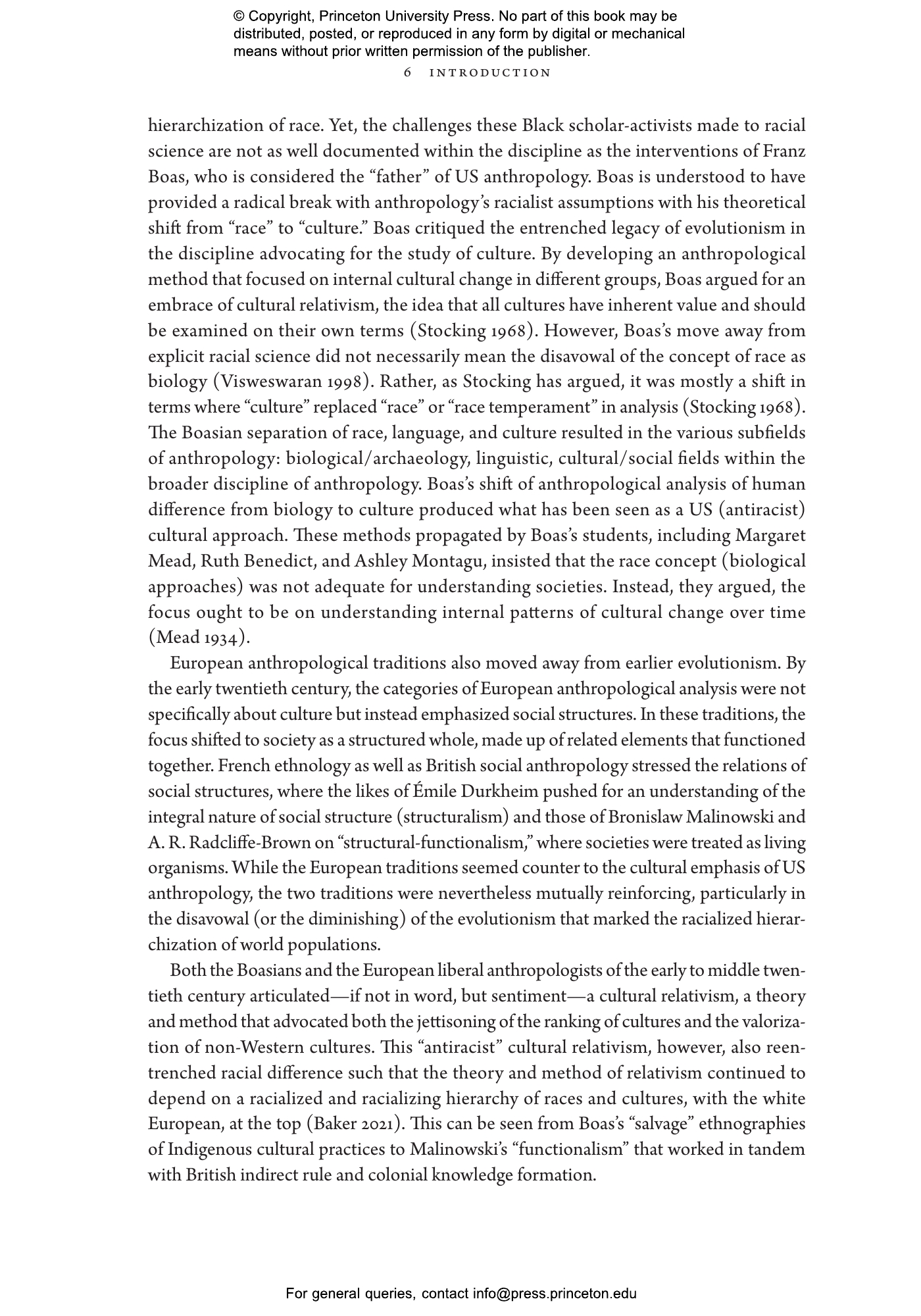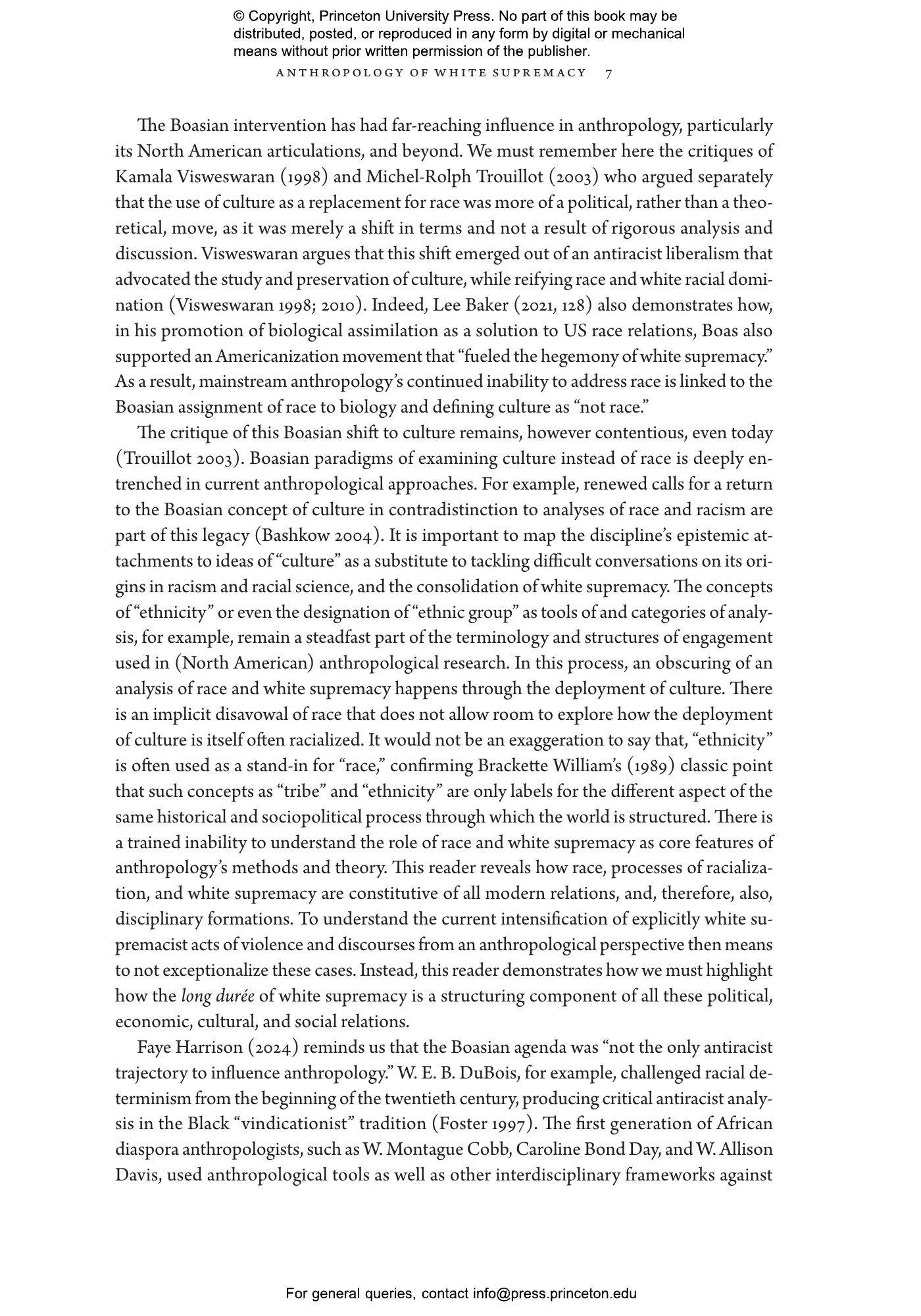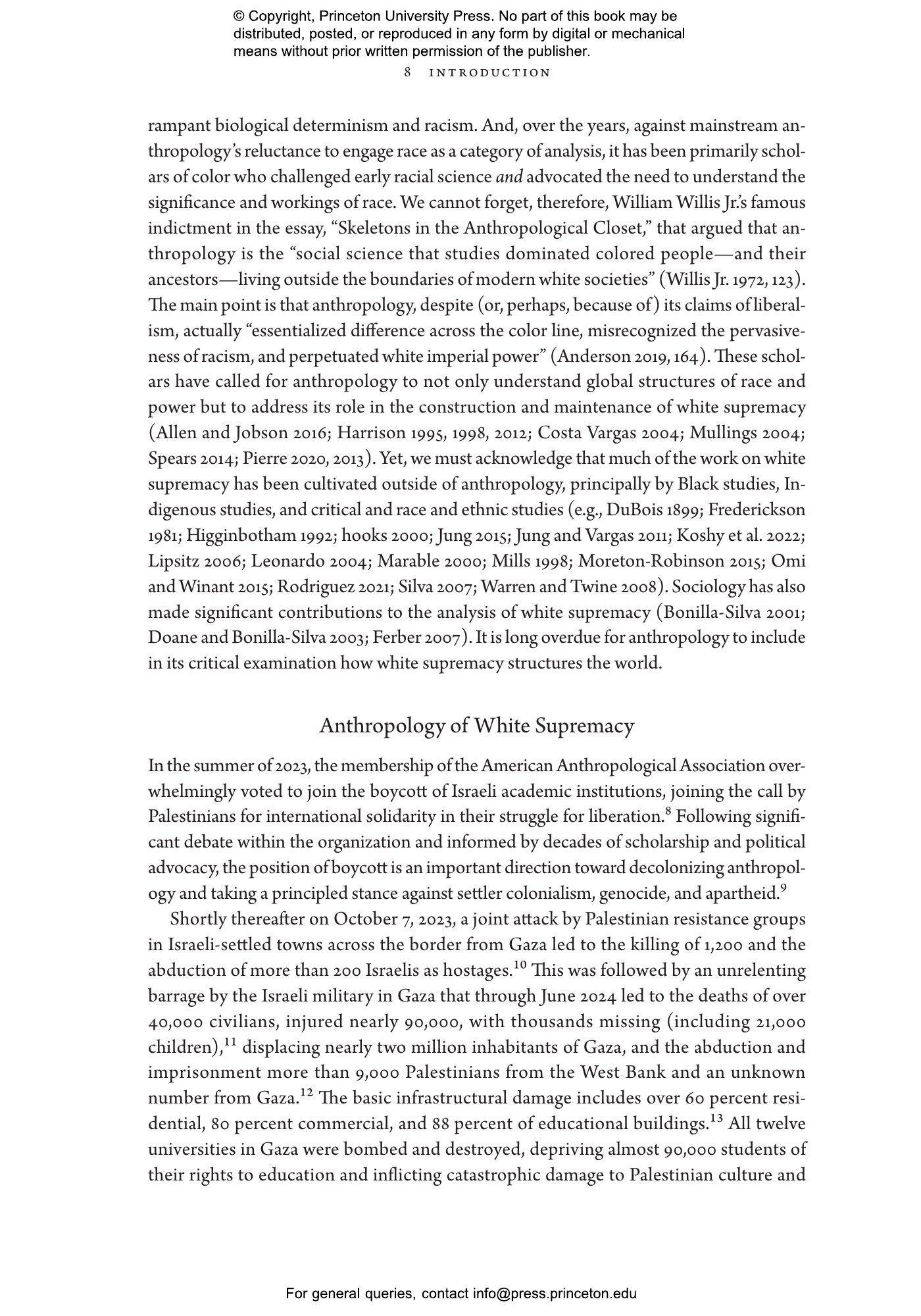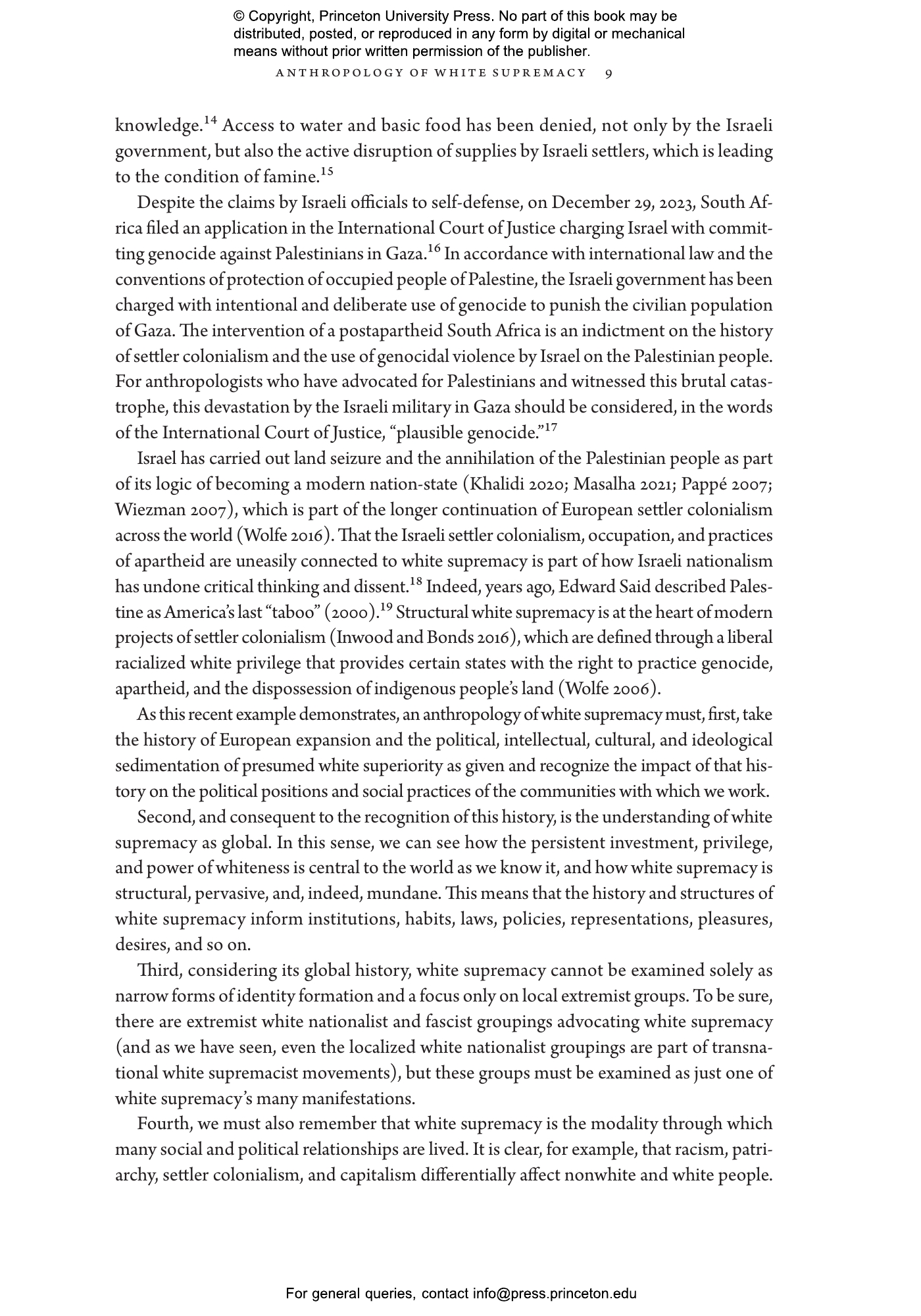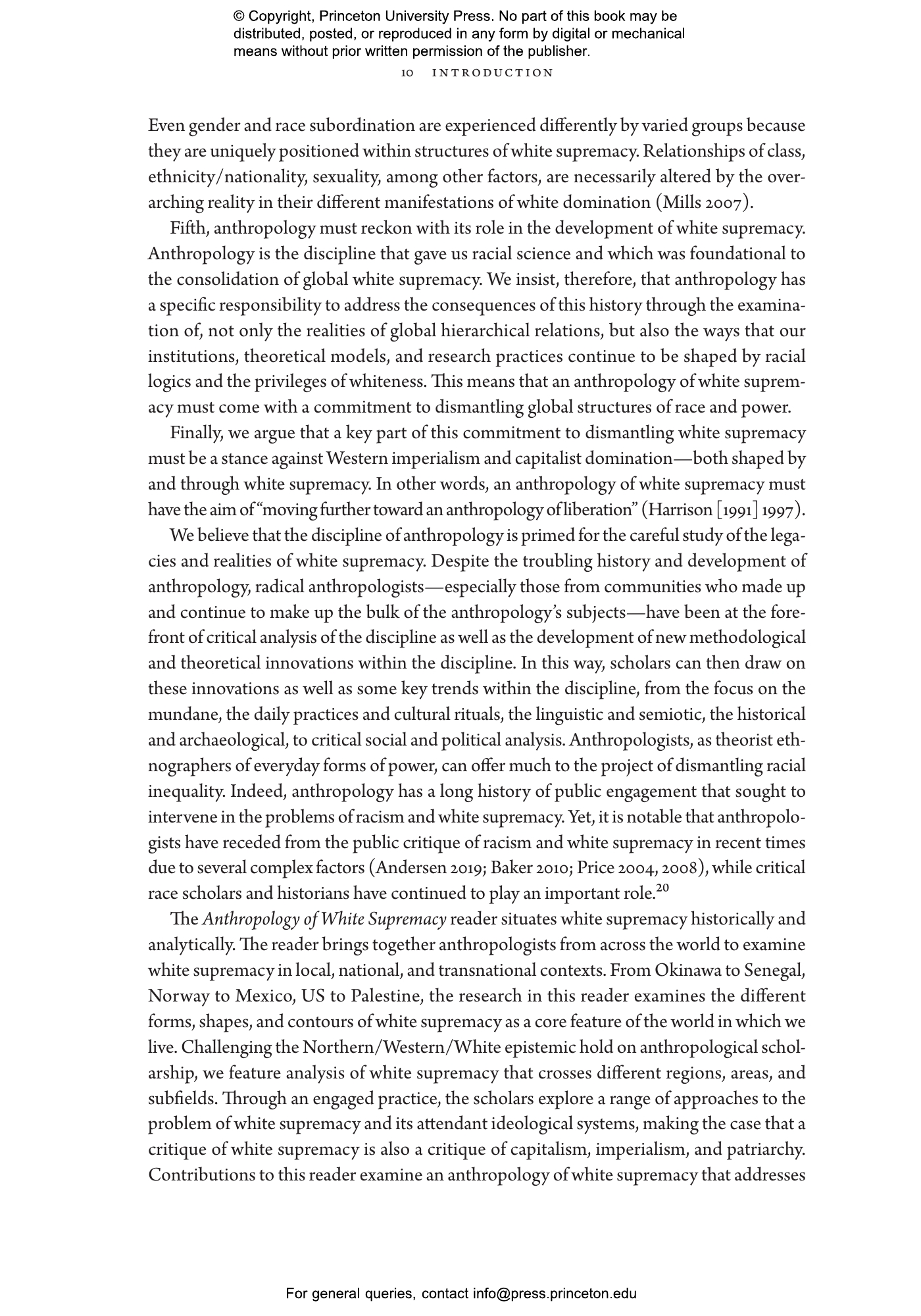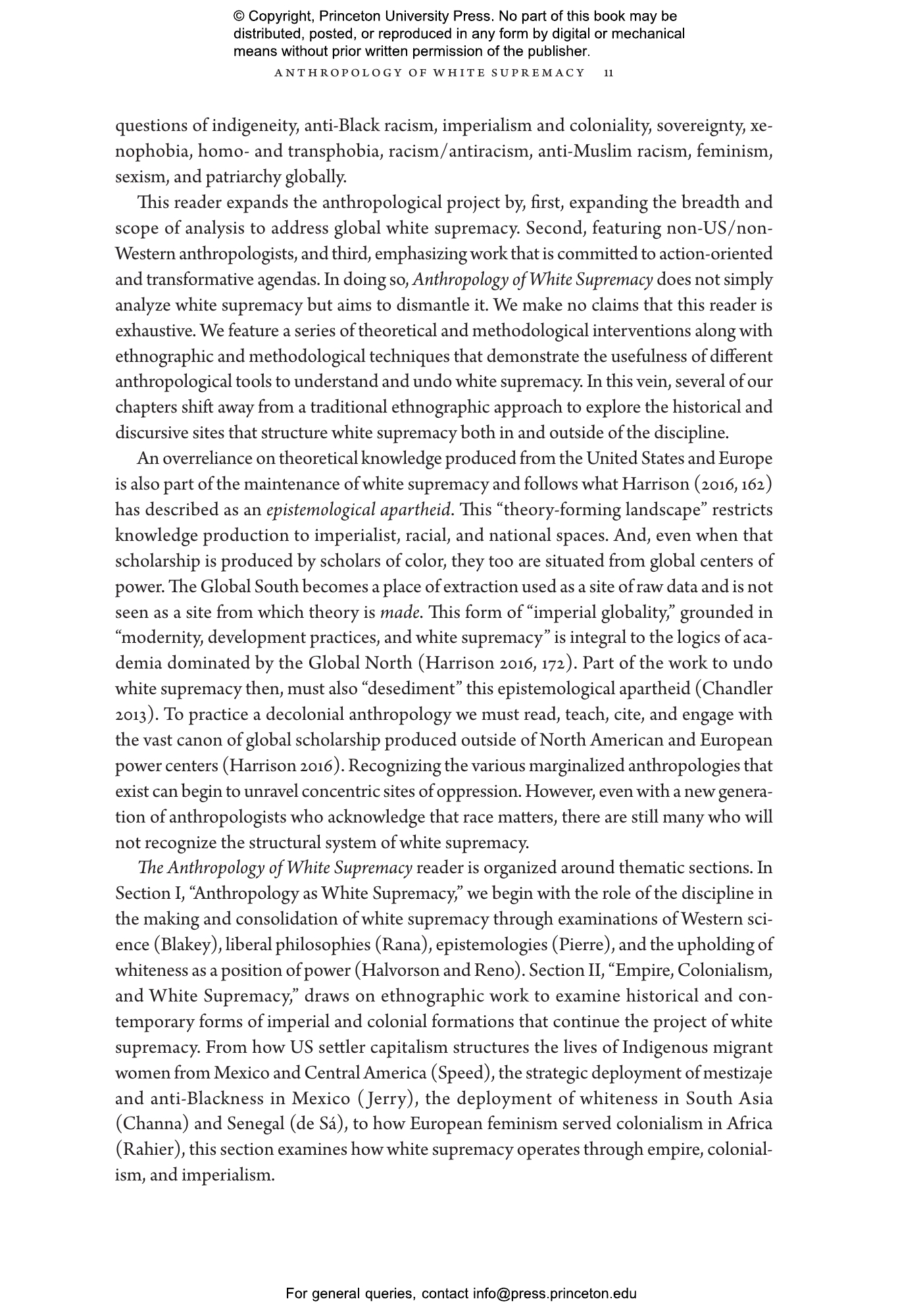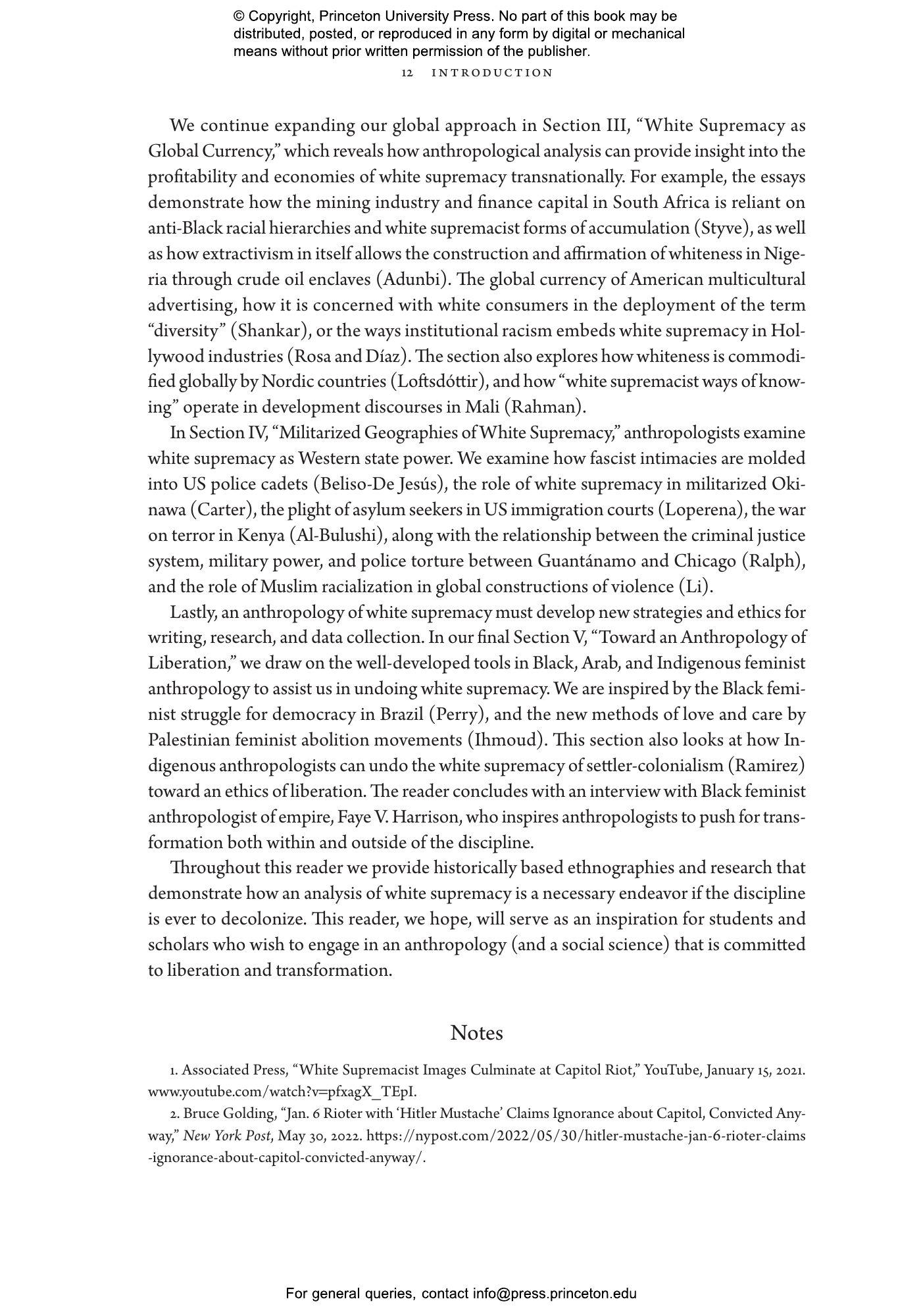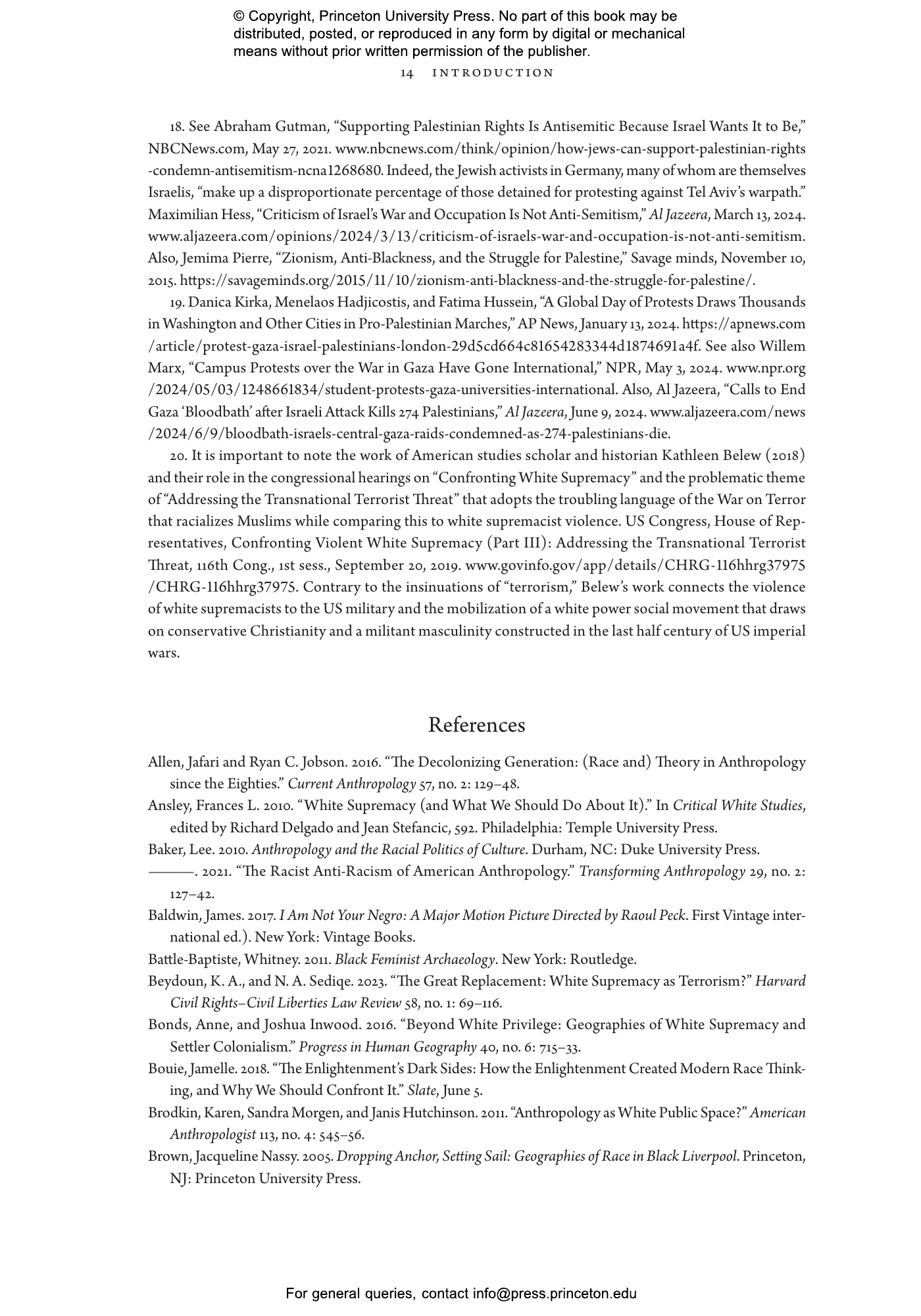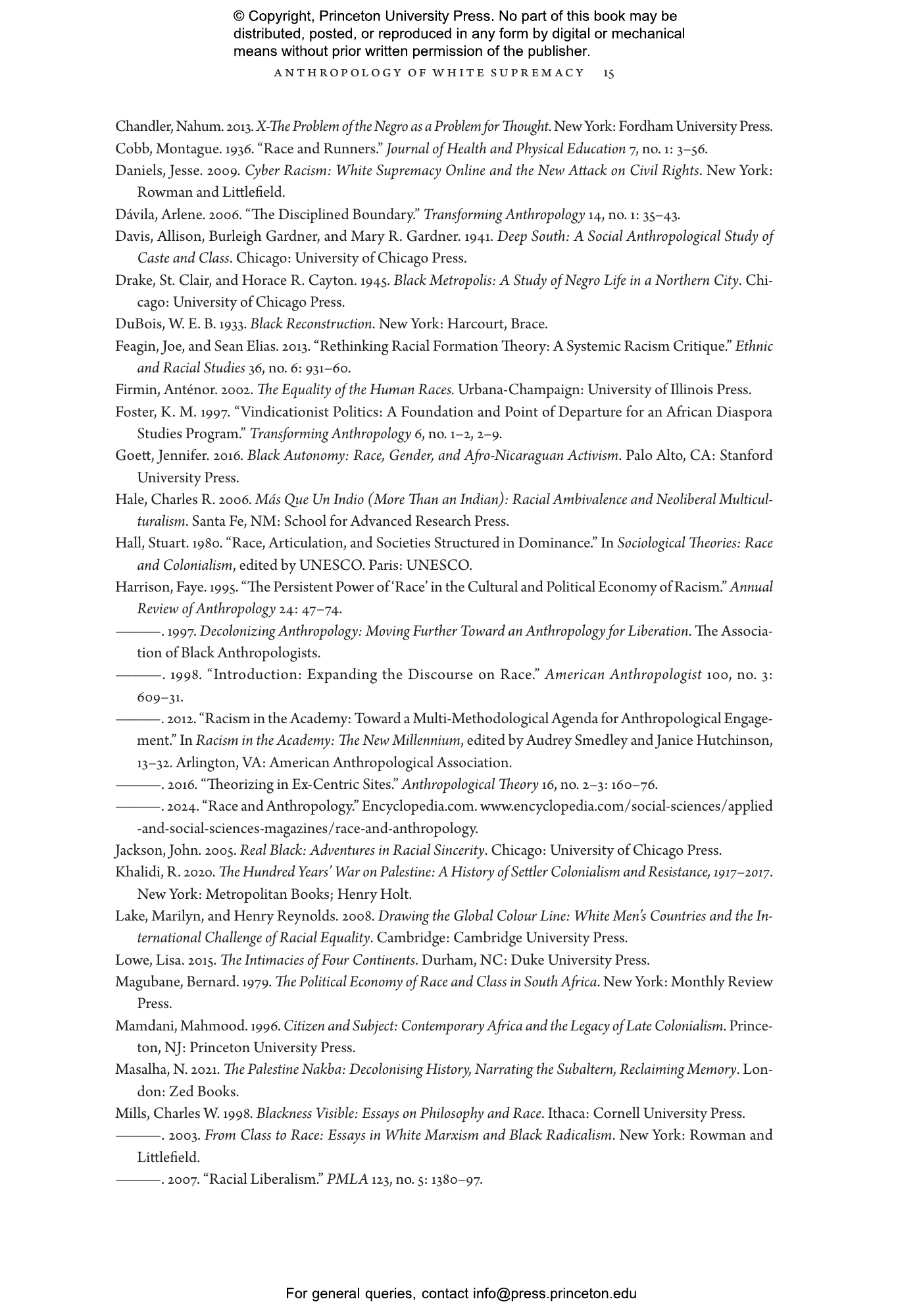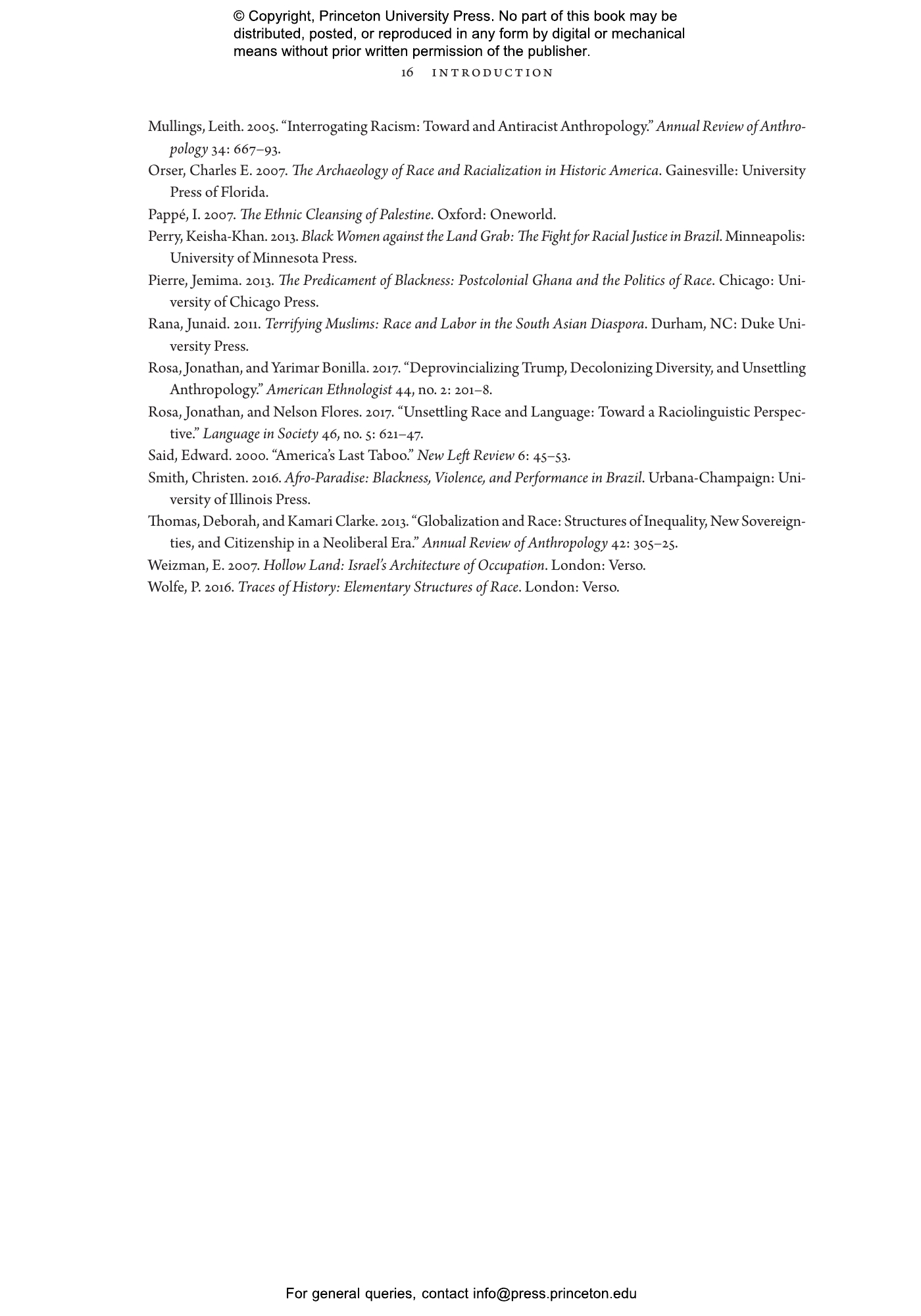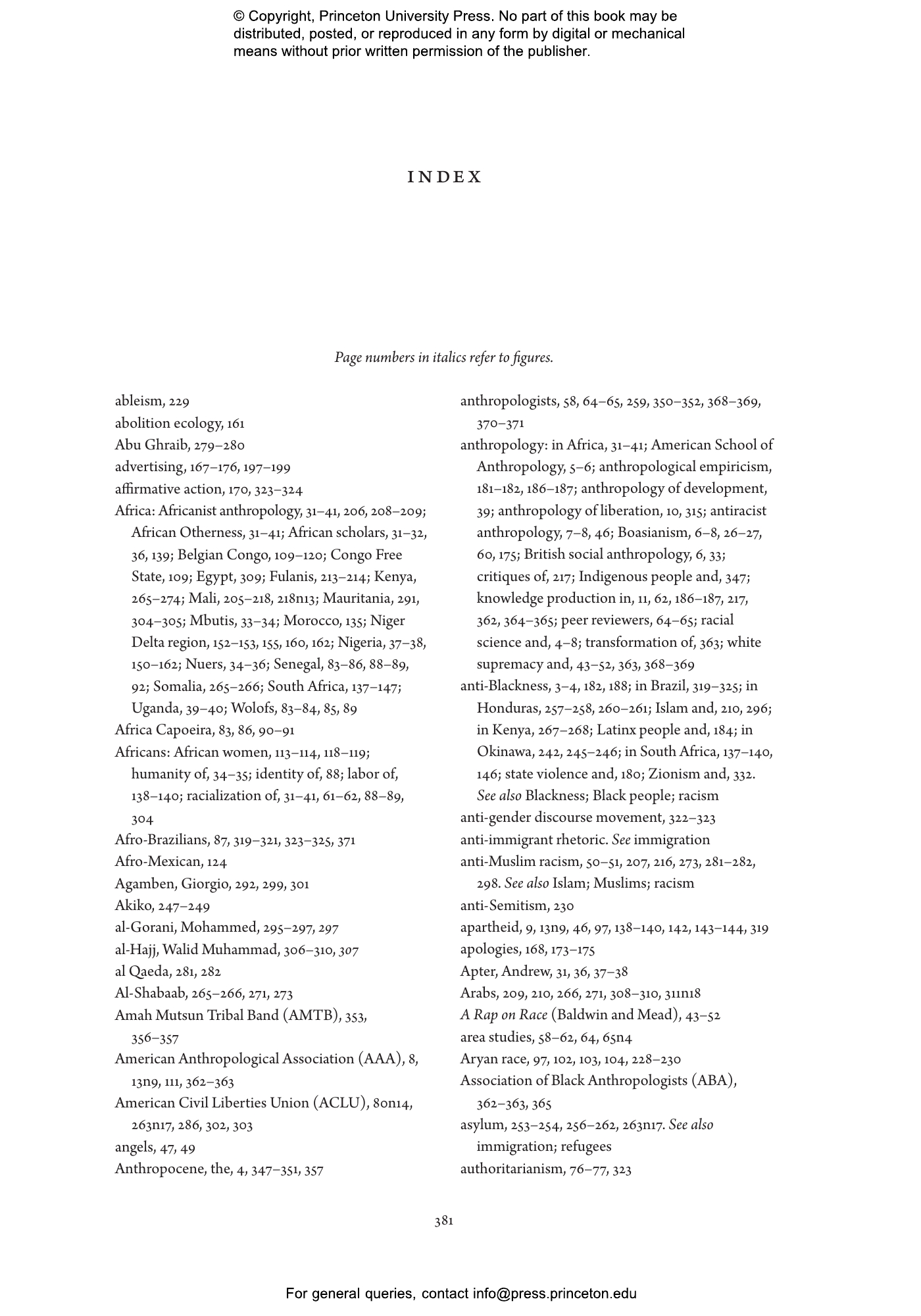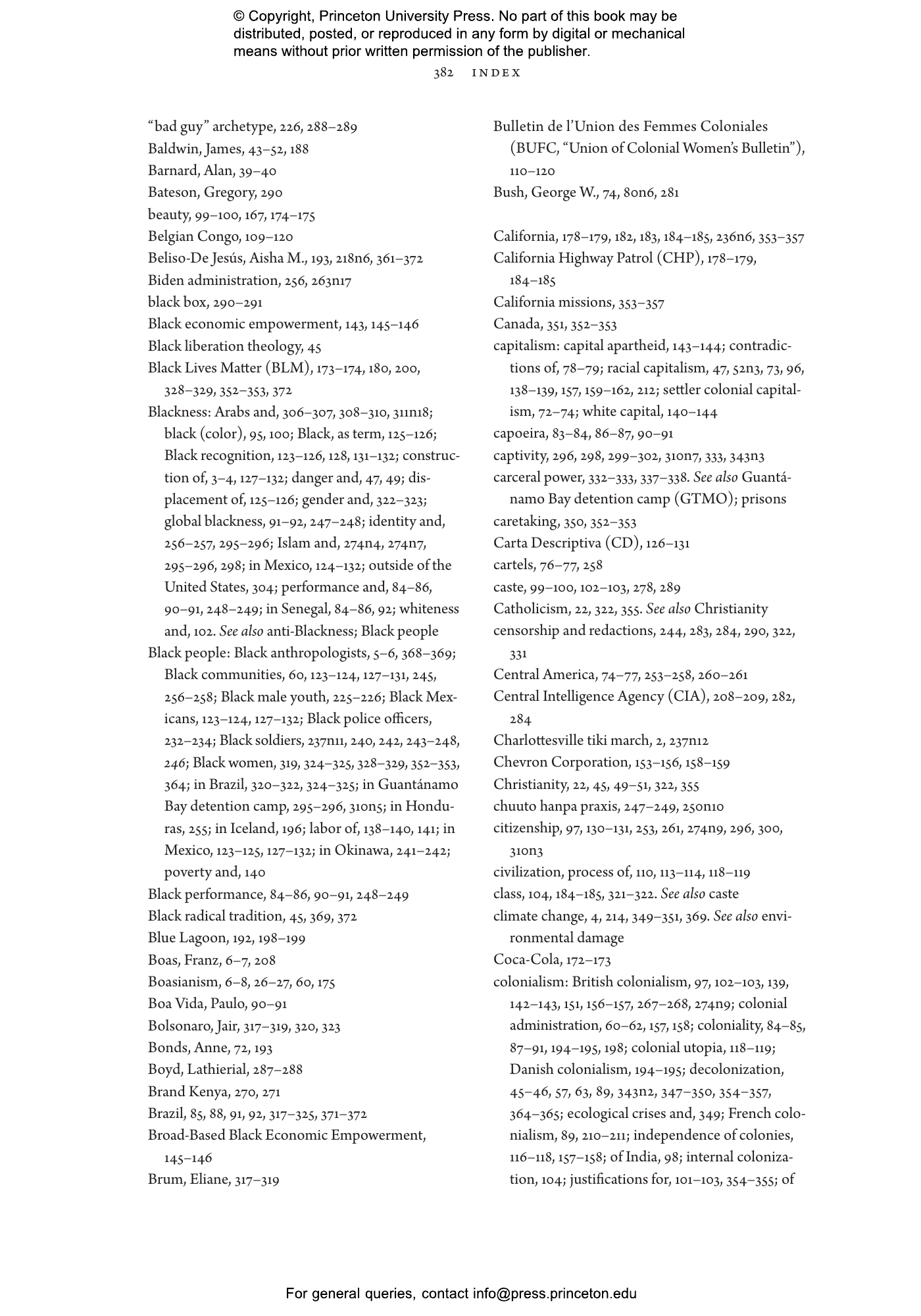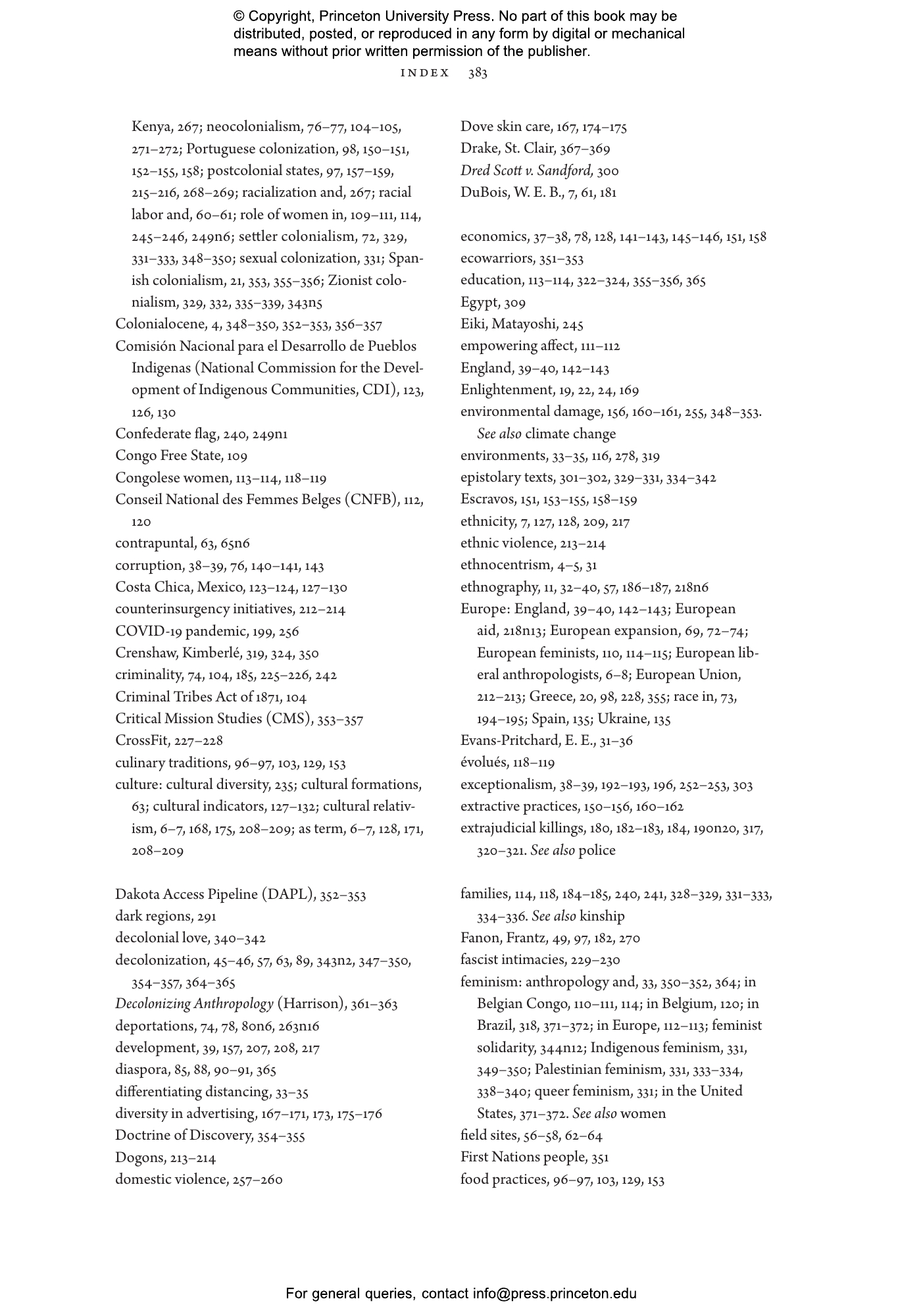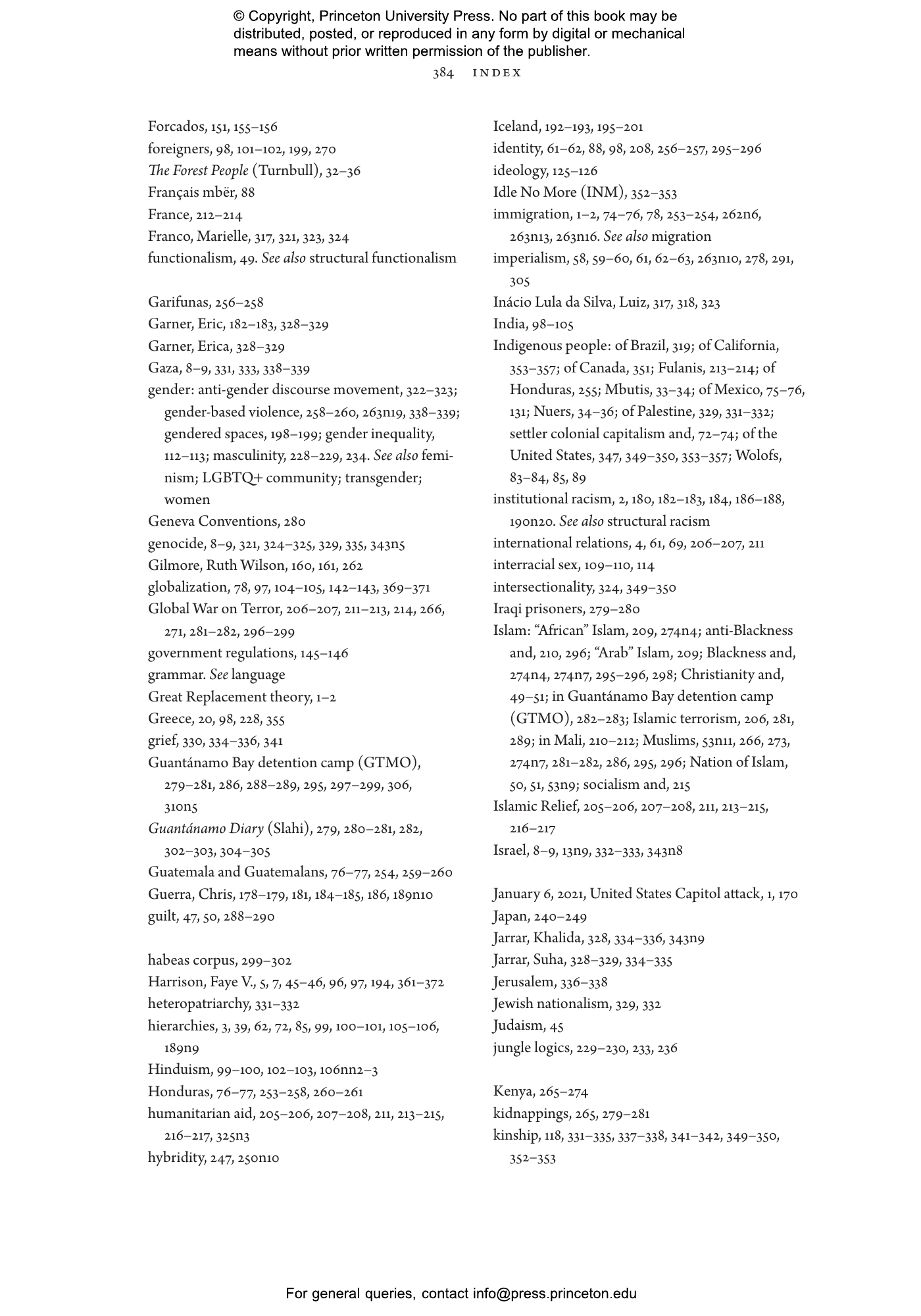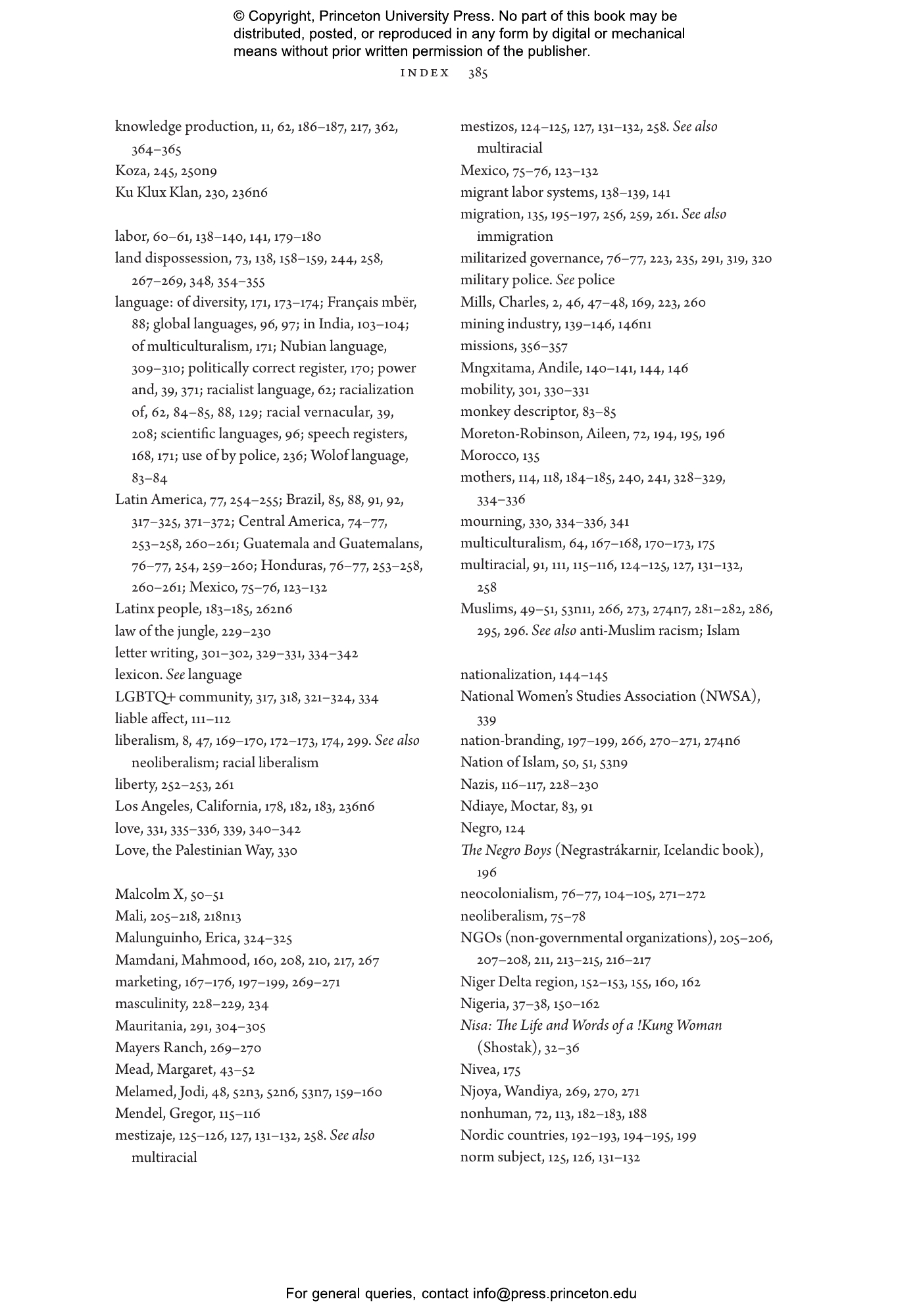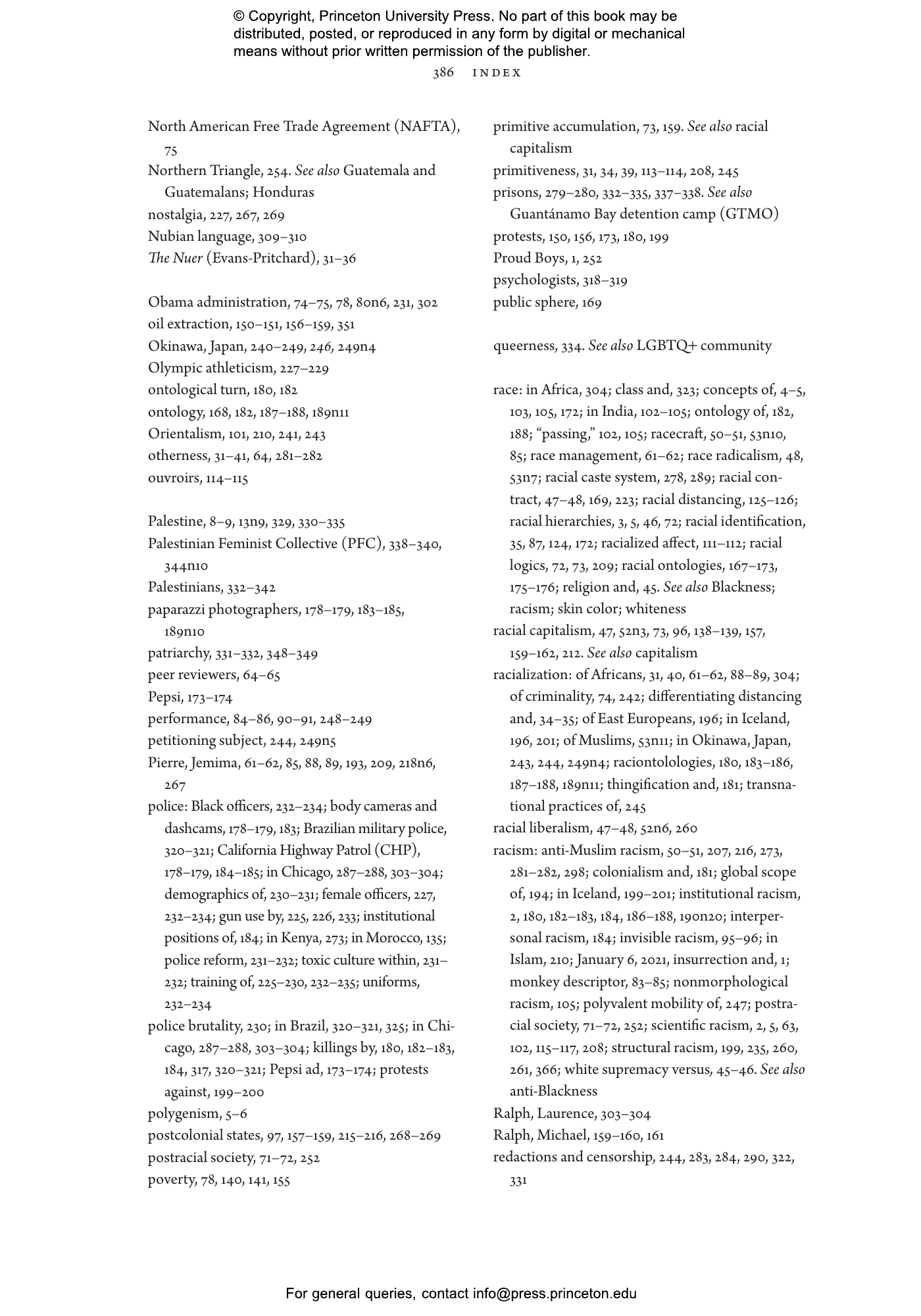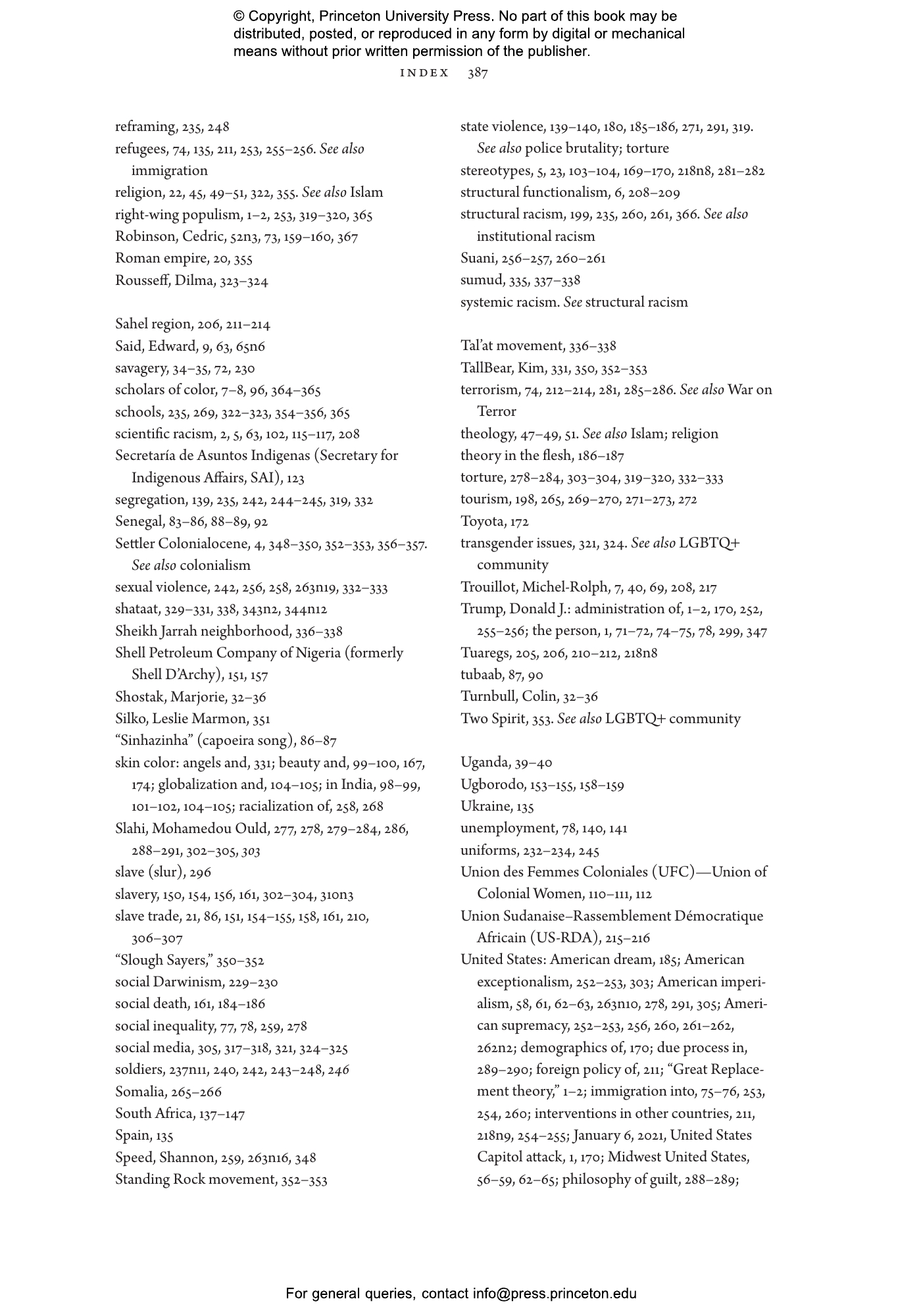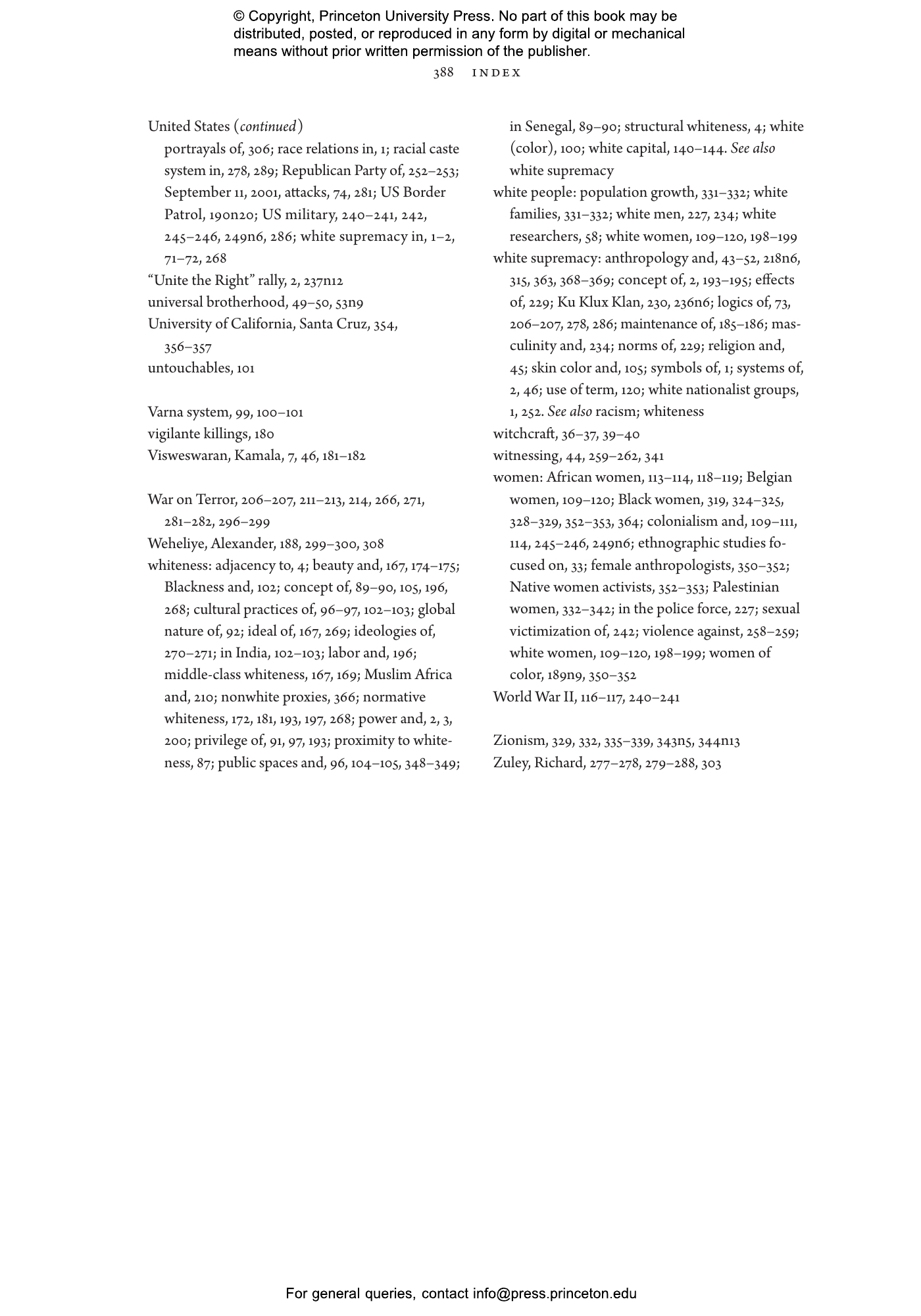White supremacy, an entrenched global system that emerged alongside European colonialism, is based on presumed biological and cultural differences, racist practices, the hypervaluation of whiteness, and the devaluation of nonwhites. Anthropology has been shaped by—and has helped to shape—white supremacy, yet the discipline also offers powerful tools for understanding this system at a global scale. The Anthropology of White Supremacy gathers original essays from a diverse, international group of anthropologists to explore how this phenomenon works both within anthropology and in cultural and political structures around the world.
The book features historical and ethnographic analysis about Brazil, Iceland, Japan, Mexico, Nigeria, Palestine, Senegal, South Africa, and the United States, and addresses the ways white supremacy impacts a broad range of issues, including finance, advertising and media representations, militarism, police training, migration, and development.
The Anthropology of White Supremacy demonstrates not only how anthropology can help us to better comprehend white supremacy, but also how the discipline can help us begin to dismantle it.
The contributors include Omolade Adunbi, Samar Al-Bulushi, Aisha M. Beliso-De Jesús, Michael L. Blakey, Mitzi Uehara Carter, Subhadra Mitra Channa, Celina de Sá, Vanessa Díaz, Britt Halvorson, Faye V. Harrison, Sarah Ihmoud, Anthony R. Jerry, Darryl Li, Kristín Loftsdóttir, Christopher A. Loperena, Keisha-Khan Y. Perry, Jemima Pierre, Jean Muteba Rahier, Laurence Ralph, Renya K. Ramirez, Junaid Rana, Joshua Reno, Rhea Rahman, Jonathan Rosa, Shalini Shankar, Shannon Speed, and Maria Dyveke Styve.
Aisha M. Beliso-De Jesús is a social-cultural anthropologist, the Olden Street Professor of American Studies, Chair and chair of the Effron Center for the Study of America at Princeton University, and the author of Excited Delirium. Jemima Pierre is a social-cultural anthropologist, professor at the Social Justice Institute at the University of British Columbia, Vancouver, and the author of The Predicament of Blackness. Junaid Rana is a social-cultural anthropologist, associate professor of Asian American studies at the University of Illinois at Urbana-Champaign, and the author of Terrifying Muslims.
“This breathtaking collection provides a multitemporal, cross-geographical framing of white supremacy as a normative regime of disciplinary method and epistemology. By curating a robustly global analysis, The Anthropology of White Supremacy makes an indelible contribution to the insurgent streams of the critical social sciences. This volume is an indispensable pedagogical and theoretical tool.”—Dylan Rodríguez, University of California, Riverside
“This brilliant and timely collection makes a tremendous contribution to anthropology and many other fields well beyond it. Required reading that is forceful and compelling in its epistemological and political interventions, this is radical and transformative knowledge production at its finest.”—J. Kēhaulani Kauanui, author of Paradoxes of Hawaiian Sovereignty
“The Anthropology of White Supremacy is right on time. This volume brilliantly reveals how the histories and infrastructures of imperialism, colonialism, and slavery live in the present in multifaceted ways—and how the discipline of anthropology is at the center of this story. A must-read for any student of humanity.”—Deborah A. Thomas, author of Political Life in the Wake of the Plantation
“This volume provides a sustained and systemic critique and unmaking of the raciological thinking of white supremacy that is the foundation of anthropology. The essays open new arenas of thought and analytical practices to enact a powerful rupture in the discipline that can only be bridged by its total reinvention.”—Rinaldo Walcott, author of The Long Emancipation: Moving Toward Black Freedom
“This important collection offers a detailed picture of what global white supremacy looks like through the eyes of anthropologists. It is both an indictment of the discipline and an illustration of what a critical anthropology of white supremacy can do.”—Sherene H. Razack, author of Nothing Has to Make Sense: Upholding White Supremacy through Anti-Muslim Racism
“The Anthropology of White Supremacy offers a formidable challenge to the ways that anthropologists have studied race while neglecting the discipline’s attachments to white supremacy. It will undoubtedly serve as an essential reference and pedagogical mainstay for anthropologists in the decades to come.”—Ryan Cecil Jobson, University of Chicago


